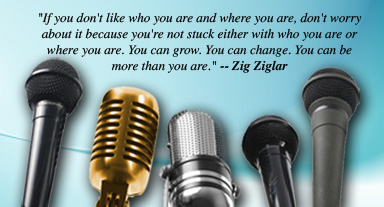By Maria Dy
Effective presentations help people learn something – period. And it is the job of the presenter to make learning easier for the audience. Thus, it is important that a presentation is effectively delivered and understood by its intended listeners.
- Know your subject matter by heart and know your audience. Give yourself an edge by reading more on the topic. Know the latest trends and issues. The ability to deliver your topic with confidence and conviction directly affects how your audience will accept your ideas.
See how you can relate the topic to the type of audience you have. Knowing your audience will give you an idea on what appropriate experiences and stories to tell.
- Use a presentation script. Have an interesting opening. You can open your presentation with a question, a joke or even a short anecdote.
Make an introduction of your topic. Before beginning, it is best if you can give the audience an overview of what to expect. Emphasize that the topic will really be beneficial to them. Encourage them to take down notes and ask questions for them to make the most out of your presentation.
As you tackle your topic section by section, ask your listeners questions. By asking questions, you deepen their understanding. Support your points with real-life experiences that your audience can relate to.
Synthesize your presentation. At the end, wrap up by going through the major points.
- Use visuals in your presentation. Graphics will support your spoken words. It is widely proven that people learn more and information is more retained when presentations are enhanced with visuals.
Check that your presentation’s font size is big enough for the back portion of the audience to see. Use simple charts for visuals.
- Inject humour in your delivery. Humour is one of the most effective ways to grab the attention of your listeners. Humour makes the audience more relaxed. However, do not overdo it by using sexist, political or religious jokes. Use humour appropriately.
- Get feedback from audience after. You may have a questionnaire distributed after your presentation to check if goals and objectives are met. Leave your contact details to them so that they can be encouraged to get in touch with you after for their questions or concerns.
While the above points will help during the delivery of the presentation, one must also take note of some points before the presentation proper.
- Rehearse your presentation. Make sure that you will be delivering your presentation within the allowed time. You do not want to end up hogging the next speaker’s time.
- Arrive at the venue earlier. This will give you time to set up your presentation. Check that all your technical stuff are working. Arriving early will also give you time to get to know some of the participants thus making yourself and themselves comfortable with each other.
You want people to listen to you in the next presentations. So arm yourself with the skills to make that presentation effective and appreciated by your audience.


